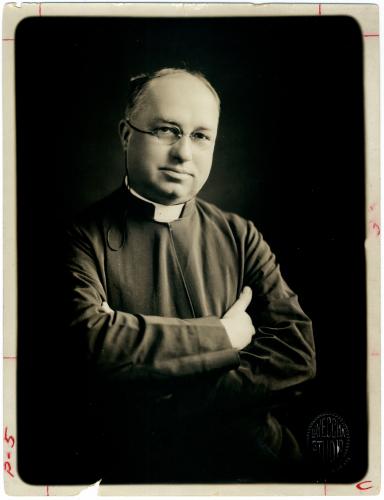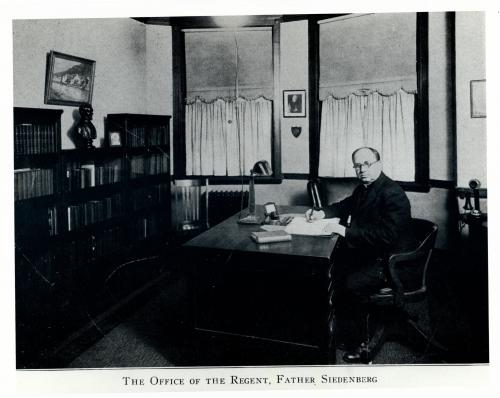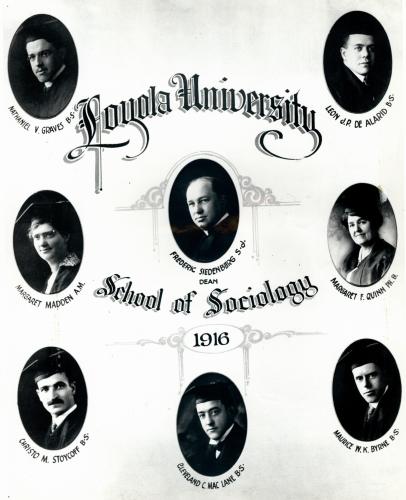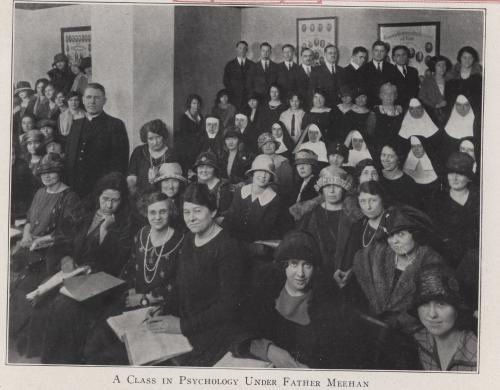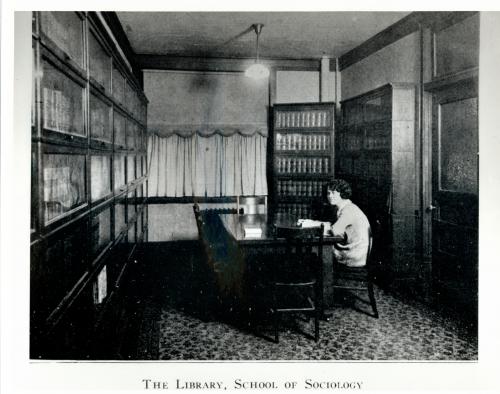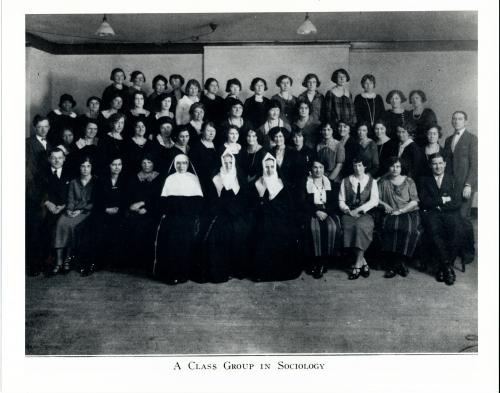Reform Through Faith: Sociology/Social Work at Loyola
One of the defining aspects of Chicago’s history in the early 20th century was its embrace of sociology as an academic discipline. Inspired by the innovative ideas of their European contemporaries, the primary goals of this endeavor were to foster a sense of community by advocating for better working conditions and providing for people's basic needs.
While there were many different methodological approaches to this goal, one well-known Jesuit priest from Loyola University, Frederic Siedenburg, proposed bringing faith and sociology into the same conversation. As a result, Fr. Siedenburg helped to redefine what it meant to engage social justice work at Loyola. This section explores one of Fr. Siedenburg’s most important contributions to Loyola, The School of Sociology, and highlights the myriad ways it promoted social justice in the early years of its establishment in comparison to its modern equivalent, The School of Social Work.
Then: The Loyola University Lecture Bureau and The School of Sociology
Following his study of Sociology and Economics at the Universities of Innsbruck and Vienna in Germany, Fr. Siedenburg returned to the states with a fresh perspective on society and an individuals' role in it. Initially assigned by the Church to be the headmaster of Loyola Academy, the Jesuit high school affiliated with the university, Fr. Siedenburg took up an added task of organizing lectures in the community geared towards provoking thought of the “social question” in relation to Christian virtues.
Presented through what he officially called the Loyola University Lecture Bureau, Fr. Siedenburg and other socially inclined lecturers discussed subjects such as the history of labor unions, industrial betterment and hygiene, family, wages, and socialism. In many ways, Fr. Siedenburg aimed through these lectures to stir interest and investigation into the causes of social inequalities and posed that social reform was the “cure” for world unrest.
Fr. Siedenburg believed that individuals were called to promote social reform through advocacy for workman’s compensation laws and minimum wage laws. To Fr. Siedenburg, every man and woman are entitled to five things: help, education, the right to work, recreation, and moral development. Without a living wage, however, these things are impossible to obtain.
Fr. Siedenburg’s lectures were extremely well received. The Loyola University Lecture Bureau attracted national attention as one of the leading efforts to educate the public on social issues from both a theoretical and practical standpoint. He and other socially inclined professors gave over a hundred lectures in 1913, an unprecedented feat for the Jesuit community. Ultimately, his work through the Bureau lead to the establishment of the School of Sociology at Loyola University in 1914, a school that, under Fr. Siedenburg’s leadership, would amplify his effort to provide a social service to the world.
Loyola’s School of Sociology, much like the Lecture Bureau, aimed to be an agent of social change. In essence, the School recognized a need for a compassionate society: a society where its citizens understand the ways in which humans suffer and work diligently to prevent suffering.
Initially starting out on the 6th floor of the Ashland block on the corner of Randolph and Dearborn streets, the early School of Sociology courses included “The History of Social Reform,” “Social Ethics and Civics,” and “General Economics,” all of which emphasized discussion and practice of the appropriate methods for working with human beings who had fallen victim to ill health, low wages, unemployment, or poor housing. The school’s curriculum and foundational Jesuit virtues of charity, education, and service fueled all of Fr. Siedenburg’s community efforts. Students, whether Catholic or non-Catholic, were encouraged by Fr. Siedenburg to internalize such virtues as he believed that they were the key to fully understanding the fundamental principles which govern all human relationships, the laws under which we live, and the invaluable need for social reform.
Now: The School of Social Work
After over a hundred years of preparing leaders in social work, Loyola’s School of Social Work continues to flourish as a place of renowned training, education, and scholarship for professionals seeking to foster their ability to effect change in the face of today’s difficult political, economic, and social circumstances. As Fr. Siedenburg had encouraged with his students in the past, students in the present are still driven to engage with the world with a strong commitment to the ethical tenets of the profession, and a willingness to challenge inequities where they exist.
